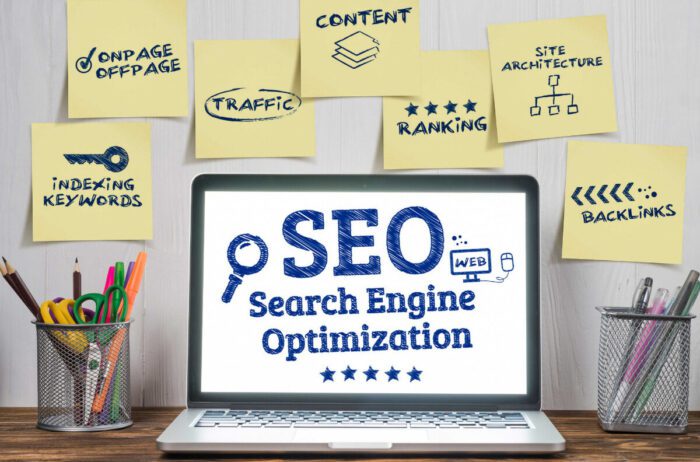Setting up a business and attracting customers can be equally challenging, especially with the fierce market competition. Fortunately, with a robust SEO strategy, businesses can have the leverage to improve their website’s visibility and searchability, driving more traffic and boosting ranking.
While different businesses have their strategy for SEO success, there are methods to track SEO performance and determine which strategies work and which don’t. Businesses can use SEO tracking techniques to avoid spending time and money on things that don’t generate the expected profit.
When tracking the performance of your SEO, there are key factors that can give you a detailed look at which strategy is most effective for your website. It would be best to consider these factors to ensure that your SEO efforts will produce tangible results.
Key Ingredients for SEO Success
It is possible to rank higher in search engines by writing more content, linking to more relevant sites, and using more keywords. However, there are critical elements you should consider when devising and scaling up your SEO approach.
Here are some of the SEO tracking metrics that can give you a better understanding of your SEO strategy:
- Conversion Rate
Conversion rate is the overall impact of your SEO strategy on sales. This is the most critical indicator of your website’s success. A website should showcase your products and services, converting leads into sales.
Google Analytics allows you to track conversion rates based on your goals. Using this tool, you can track how many people visit your site and whether they convert. You can then use that collected data to personalize your website’s content, improving traffic.
- Bounce Rate
Bounce rate represents the percentage of “bounce” or the number of visitors leaving a site after landing on one page rather than staying within the same website.
This percentage is an excellent indicator of the quality of your website content and what users expect when they click on one of your pages from the search results. If your bounce rate is low, you can be confident that your contents offer what visitors look for, helping you rank higher and achieve your SEO goals.
- Click-Through Rate
You can use CTR (or click-through rate) to determine how optimized your page title and meta description are and how effectively your listings drive clicks to your site.
CTR helps you understand your customers—what works and what doesn’t when you try to reach your target audience. Low CTR can indicate that you are not targeting the right audience or that your message isn’t convincing enough to persuade them to click.
- Organic Ranking
Organic traffic is the best way to measure your SEO performance. It represents the number of visitors to your website only coming from organic searches.
You can use overall traffic to measure your site’s performance and determine the effectiveness of your SEO strategy. But, it’s better to focus on organic traffic and improve your visibility on search engines for keywords related to your industry or business.
This technique will result in more people visiting your site via search results. Tracking
organic traffic through online tools, such as Google Analytics can also help you measure SEO performance. If your organic traffic increases, your SEO strategy will be more successful. If your organic traffic is falling or fattening, you should adjust your strategy.
- Page Speed
Page speed is an important metric that affects all other SEO metrics, including the conversion and bounce rate. Google’s page speed benchmarks showed a strong correlation between slow websites and low bounce rates.
As page load times increase, so does the likelihood that people will leave your website.
A website that takes 10 seconds to load can result in a 120% rise in bounce rates.
Optimizing your website for page speed is essential, and checking whether your site’s images, texts, or videos impact loading speed.
- Keyword Ranking
As users click on more than 25% of Google search results, it is vital to rank on Google’s first page and gain the top position possible. You should optimize your content for specific and long-tail keywords for your website to rank well on search engine results pages (SERPs).
You can use many tools to track your SEO rankings, specifically for your products and business keywords. An extensive keyword analysis can help you understand your SEO performance, reveal new search terms, and show where your website ranks relative to competitive keywords.
- Backlinks
Google considers backlinks as one of the most important ranking factors for websites. You can use your backlinks to get valuable information about how you are progressing with your link-building strategy. Your current SEO strategy will succeed if you have strong and updated links to your content.
You should also pay attention to any links you didn’t build. These links may be potential opportunities that you can explore in the future.
Key Takeaway
SEO is becoming more complex, which makes it challenging to measure success. It’s no longer possible for one or two metrics alone to determine the results of your SEO efforts.
Multiple metrics, such as conversion rate, bounce rate, click-through rate, organic ranking, page speed, keyword ranking, and the number of backlinks, should now be tracked and considered when devising an SEO strategy.
A great SEO strategy isn’t something you can just set and forget. Tapping a partner can help you stay on track with your SEO strategy. A Clearwater SEO company can help you analyze tracking metrics and determine the impact of your SEO efforts on your business.



































